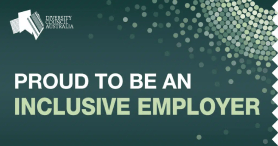The International Day of Yoga is celebrated across the world on June 21.
The theme for 2022 is Yoga For Humanity. The UN’s Yoga Day website explains that, in the wake of the Covid-19 pandemic throughout the world, there was an urgent need to address its ongoing impact on both physical and mental health.
The UN said, at the height of the pandemic border closures and lockdowns, many people around the world embraced yoga to stay healthy and fight depression. It says the “essence of yoga is balance – not just balance within the body or that between the mind and the body, but also balance in the human relationship with the world”.
Which sounds wonderful, but how does that apply for people living with a disability?
Exercise and disability
We all know that exercise is good for us, with or without a disability.
Doing any sort of exercise within our abilities helps improve our health and wellbeing, including our mental health. For anyone, but particularly for people living with a disability, being in the best possible physical condition – whatever that means for each person and their level of ability – can help us better cope with some of the challenges we face each day.
But is yoga a stretch too far?
Not necessarily. In fact, for many people with a disability, yoga could be just the exercise regimen they need.
What is yoga?
The Yoga Australia website explains yoga is generally recognised as “as an ancient system of philosophies, principles and practices derived from the Vedic tradition of India and the Himalayas, more than 2500 years ago”.
It involves more than just exercises and stretches such a “downward dog” and “warrior pose”. Its techniques include postures and movement, breath awareness and breathing exercises, relaxation and concentration, self-inquiry and meditation.
Yogability Australia believes that the benefits of yoga should be shared by all, particularly people who are living with a disability. It is a mobile and online service providing yoga, meditation & personal development to people on an NDIS plan.
It is designed to help people with a disability be happier, healthier and more self-reliant.
Sounds good. Where do I sign up?
There are some things to consider first. While yoga can be an ideal exercise for people with a disability – helping to enhance their physical and mental wellbeing – it is not for everyone.
And like all exercise, when you have physical limitations – through disability, illness and injury, or age – it is always wise to seek professional advice before starting something new, no matter how good it might possibly be for us.
Which is why you should contact us at LiveBig, where our team of experts – including occupational therapists, physiotherapists and exercise physiologists – can assess your needs and abilities and help steer you toward the right yoga program for you.
Our team are NDIS registered and can provide individual advice about the right exercise program to help people with a disability improve their overall health and wellbeing and be able to live more independently.
Why not contact us now, and see what you might be able to try on International Day of Yoga.





